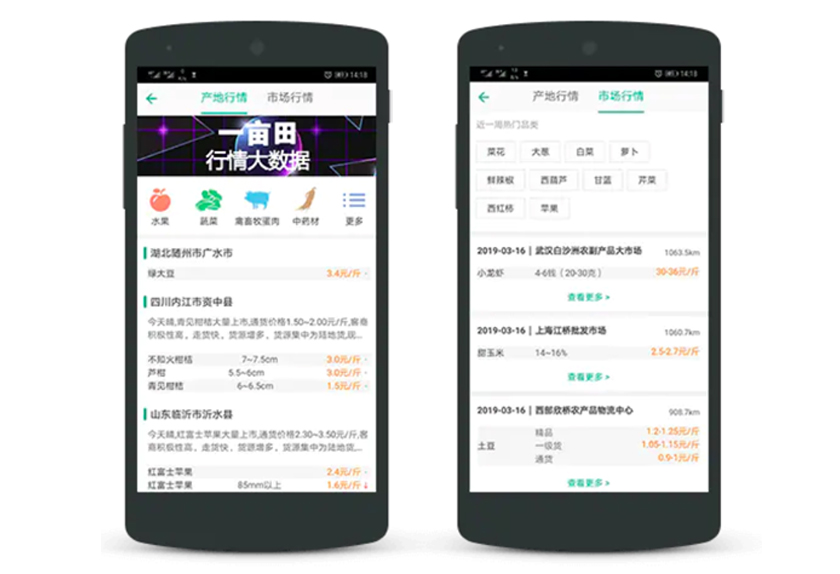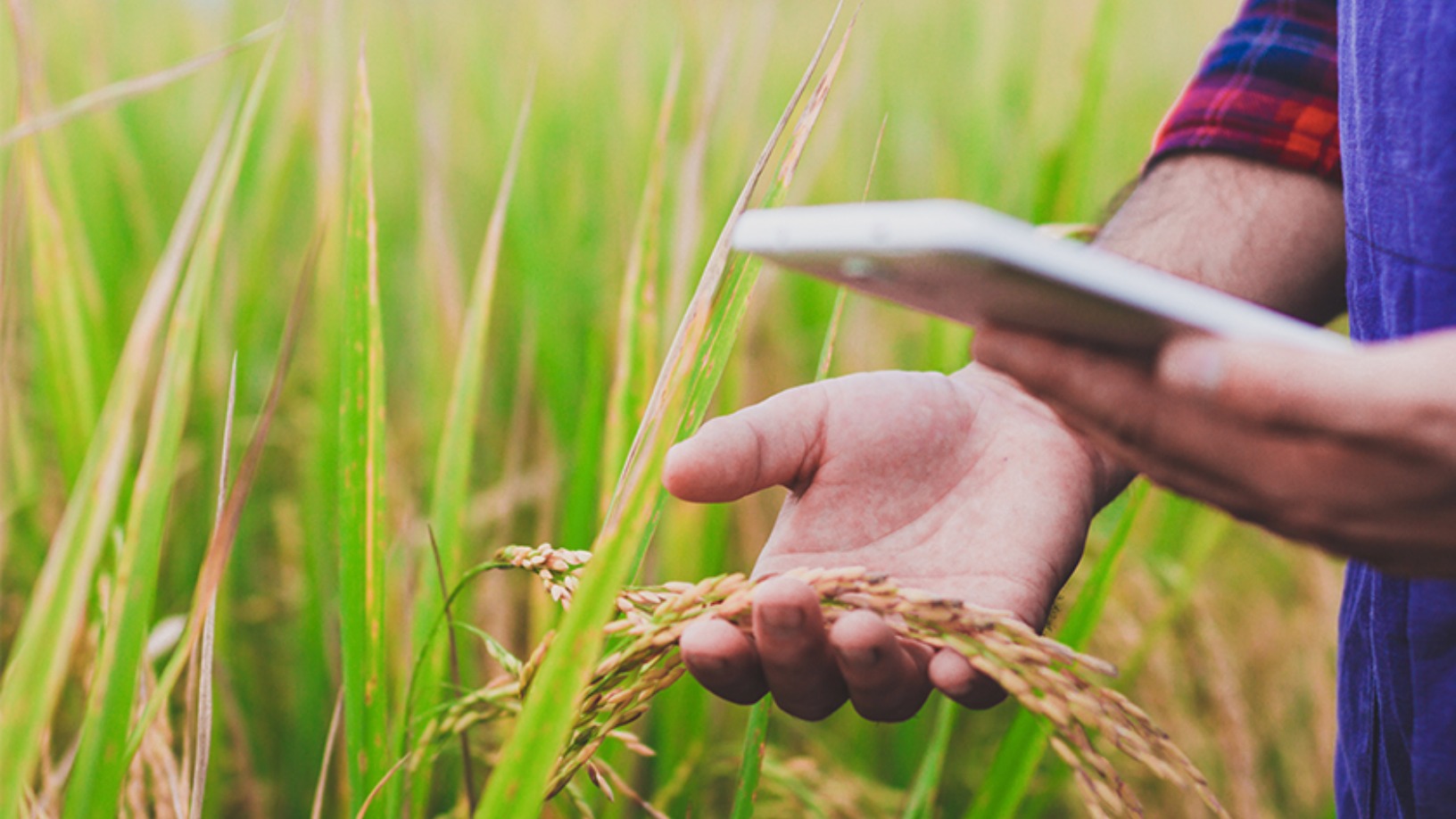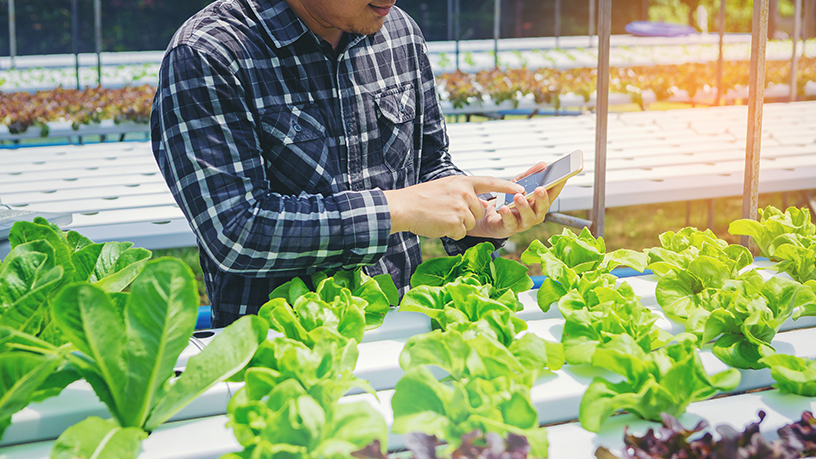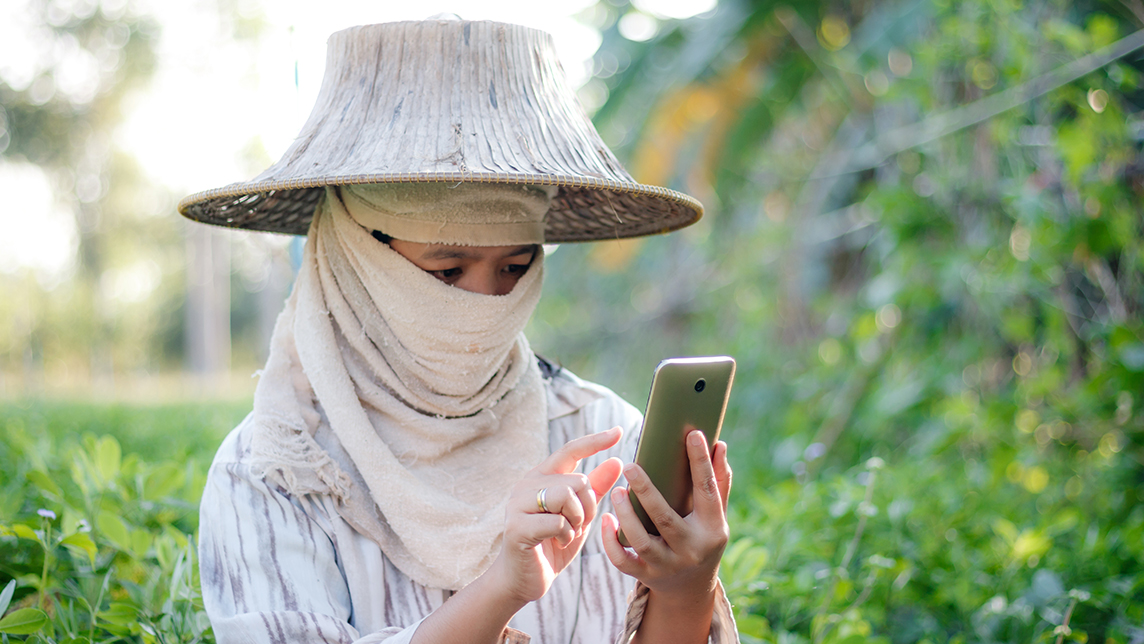The word “yimutian” refers to a Chinese measurement unit of farmland, equivalent to 1/15 of a hectare. In China, Yimutian is also the name of the country’s most popular agricultural B2B e-commerce platform, with nearly 2.3m active users to date.
Founded in 2011, Yimutian was among the pioneer batch of farming e-commerce marketplaces in China that connected farmers directly with buyers, allowing them to bypass the many middlemen in China’s traditionally long food supply chain. The startup says more than 20m sellers and buyers have used its app to date.
According to a 2019 agricultural e-commerce report published by Big-Data Research, Yimutian, with 2.29m active app users, ranks first in the sector. Huinongwang, another agri-e-commerce pioneer, is in second place with 902,000 active users.
“Yimutian is committed to becoming the e-commerce platform dearest to Chinese agriculture players," CEO and founder Deng Jinhong said in 2019, after the startup raised several hundreds of millions of renminbi in Series C funding. That round was led by Yiguo.com, a fresh foods e-retailer, and China Growth Capital, an early-stage VC investor. Other investors of Yimutian to date include Sequoia Capital China, Jack Ma’s Yunfeng Capital and ZhenFund.
Yimutian’s core business is a marketplace app connecting sellers, mostly small agricultural businesses such as farms and cooperatives, with buyers like restaurants and supermarkets. Users can also chat between themselves and access real-time market prices of agricultural products via the app.
Too many middlemen
The multiple layers of middlemen – from food processing, wholesalers, markets to end-retailers – have been a longstanding problem in the Chinese farming sector. The lack of transparency is another, with the margins exacted by each intermediary eating into farmers’ earnings, hurting their livelihood. The freshness of produce is also compromised when the goods pass through many hands, and consumers end up paying high prices inflated by middlemen’s charges.
With some 560m farmers in the country, comprising around 40% of China’s population, it’s an issue the Chinese government has been seeking to tackle through e-commerce since the early 2010s. "We must support direct selling, clear all kinds of charges and reduce the distribution costs of agricultural products," then Premier Wen Jiabao wrote in the influential magazine Qiushi, or "Seek Truth", in January 2012.
Earlier research shows that in Dalian, Liaoning Province in the north, a typical vegetable farmer earned just 20% in profit after laboring for four months while vegetable wholesalers and retailers can earn up to 10 times as much in weeks or even days.
It was around this time that Deng, a farmer’s son born in Guangdong and a former Baidu employee, and his partners, Zhou Mi and Liu Zhijia, co-founded an agriculture e-commerce company, out of an apartment in downtown Beijing.
Then in his late 20s, Deng had been working in Baidu’s product and marketing department for about four years, including on a campaign in 2009 to improve the digital infrastructure of rural China. From that stint, Deng saw the huge potential of farming e-commerce in China. This led him to start the business two years later. His co-founder Liu also went on to start another agricultural e-commerce platform, Houchuwang.
Multiple services, with big data
Yimutian’s platform is co-managed by online and offline staff. The online segment supports the e-trading between the sellers and buyers of agricultural products while the offline staff, most of them based in farming markets in 2,800 counties across the country, collect real-time prices of livestock, vegetable, fruits, and other agricultural products for the platform. They also help Yimutian attract new users, mostly farmers and cooperatives, teaching them how to use the platform so they also understand the benefits of trading on Yimutian.
Sellers can also use live streaming videos to promote their agricultural products on Yimutian. The app is free to use, with the company making profit from advertising and customized services such as matching buyers and sellers. Yimutian also focuses on big data in the distribution of agricultural products and supply and demand trends, for example, to offer targeted insights for users. The big data also goes toward developing financial services products, such as short-term loans, for farmers.

Yimutian has had its share of challenging times, too. In 2015, after having completed its Series B round of funding, the company found itself embroiled in an 18-month-long scandal involving media allegations of falsified sales, which the company later admitted. It also went on to lay off some 1,500 staff, or 50% of its workforce, mostly in marketing.
In September 2016, after the dust had settled, Yimutian saw opportunities to revitalize its business. It entered a strategic partnership with JD.com in agriculture financing services and agricultural product retail, both online and offline. At the same time, the Chinese government recognized Yimutian as one of its key “e-commerce business partners” for poverty alleviation in rural China.
Covid-19 opportunities
Since the onset of the Covid-19 outbreak and the ensuing nationwide lockdown, as well as various local natural disasters this year, pressuring crop production, food security has become a mounting concern in China. In August, President Xi Jinping urged the nation to put an end to food wastage, intensifying the sense of seriousness of the issue.
According to a report by the Chinese Academy of Social Sciences, China would have a food supply gap of some 130m tons by the end of 2025, as its urban population continues to grow and its rural workforce ages. That is equivalent to some one-fifth of the country’s total output of food in 2019.
To address the issue, Beijing is encouraging farmers to increase their output while seeking to boost their prices and livelihood to make staying on in the agriculture sector more attractive – something Yimutian has been doing.
From late 2018 to early 2020, Yimutian doubled hiring. In the first four months of 2020 starting January 20, the company facilitated online alliances for farming players affected by the Covid-19 crisis, as well as supported better information flows for sales, achieving total trading volume of more than RMB300m. In May, China’s Ministry of Commerce sent a letter thanking Yimutian for its outstanding contribution to alleviating the country’s food shortage during the pandemic.
“Even as we experience all kinds of challenges and overcome them, our business is advancing toward even greater success,” Deng said.












